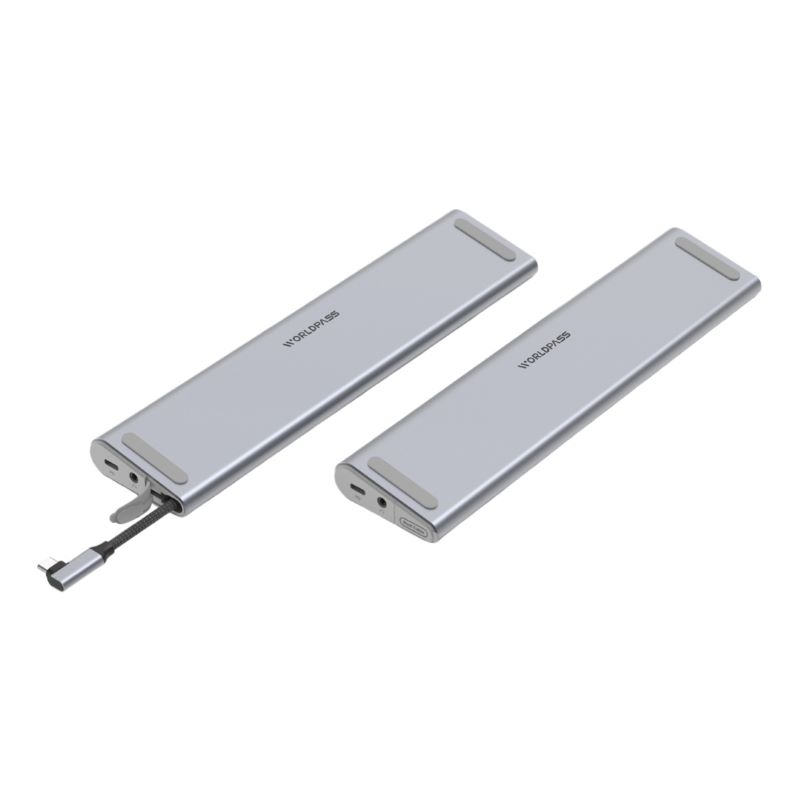How To Maximize Performance With A Docking Station With SSD Enclosure
In today¨s fast-paced digital world, professionals and businesses demand high-performance devices to keep up with increasing workloads. A docking station with SSD enclosure is the ideal solution for combining efficient data storage, rapid transfer speeds, and multitasking capabilities. This article will explore how these docking stations optimize performance and what features to consider when choosing the right one for your needs.For this reason, it can be speculated that Professional USB Hub Producer The market feedback will get better and better, which is one of the important reasons why it can develop. https://worldtypec.com/
1. Understanding the Benefits of a Docking Station with SSD Enclosure
A docking station with SSD enclosure integrates a powerful external hard drive slot for SSDs, offering several advantages:
Boosted Storage Speeds:
By supporting advanced SSD technologies, such as NVMe, these docking stations significantly improve read and write speeds. For example, NVMe SSDs can achieve transfer rates of up to 10Gbps, ensuring faster data processing and reduced latency.
Streamlined Workflows:
With features like simultaneous charging, file transfers, and expanded display support, docking stations help users multitask effectively without compromising system performance.
Compact and Versatile Design:
These docking stations consolidate multiple functionalities, such as high-speed USB ports, SD card slots, and HDMI outputs, into a single compact device.
2. Choosing the Right Docking Station with SSD Enclosure
When selecting a docking station with SSD enclosure, several factors should guide your decision:
2.1 Interface Speed
High-speed interfaces are crucial for ensuring fast data transfer and reliable performance. Look for docking stations that support:
USB 3.2: With speeds up to 10Gbps, USB 3.2 interfaces are ideal for handling large files and backups.
Thunderbolt 4: For professional users, Thunderbolt 4 provides unparalleled speed and compatibility, enabling transfer rates of up to 40Gbps and support for multiple high-resolution displays.
2.2 NVMe SSD Compatibility
Ensure the docking station supports NVMe SSDs, as they deliver faster performance compared to SATA SSDs. NVMe drives enhance overall efficiency, making them perfect for data-intensive tasks like video editing and large-scale backups.
2.3 Multitasking Features
A high-quality docking station should allow you to perform multiple tasks simultaneously. Look for features like:
Audio and Microphone Ports: Useful for video conferencing or streaming.
SD/TF Slots: Ensure the station supports UHS-II speeds for quick access to media files.
100W Charging: Ideal for powering laptops while transferring data.